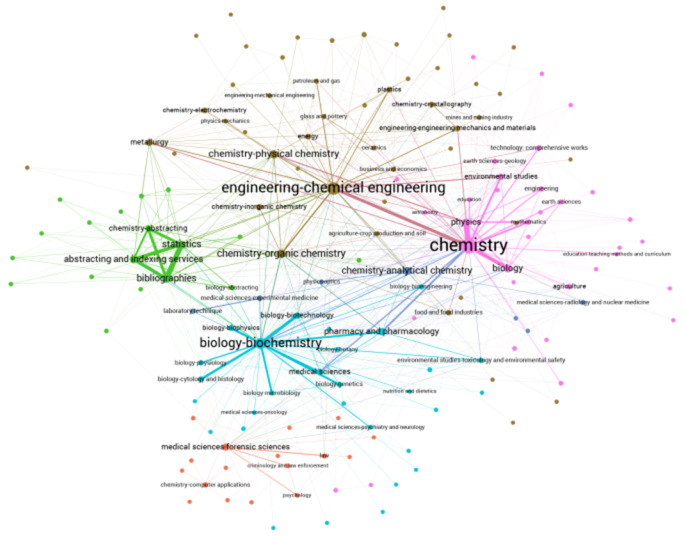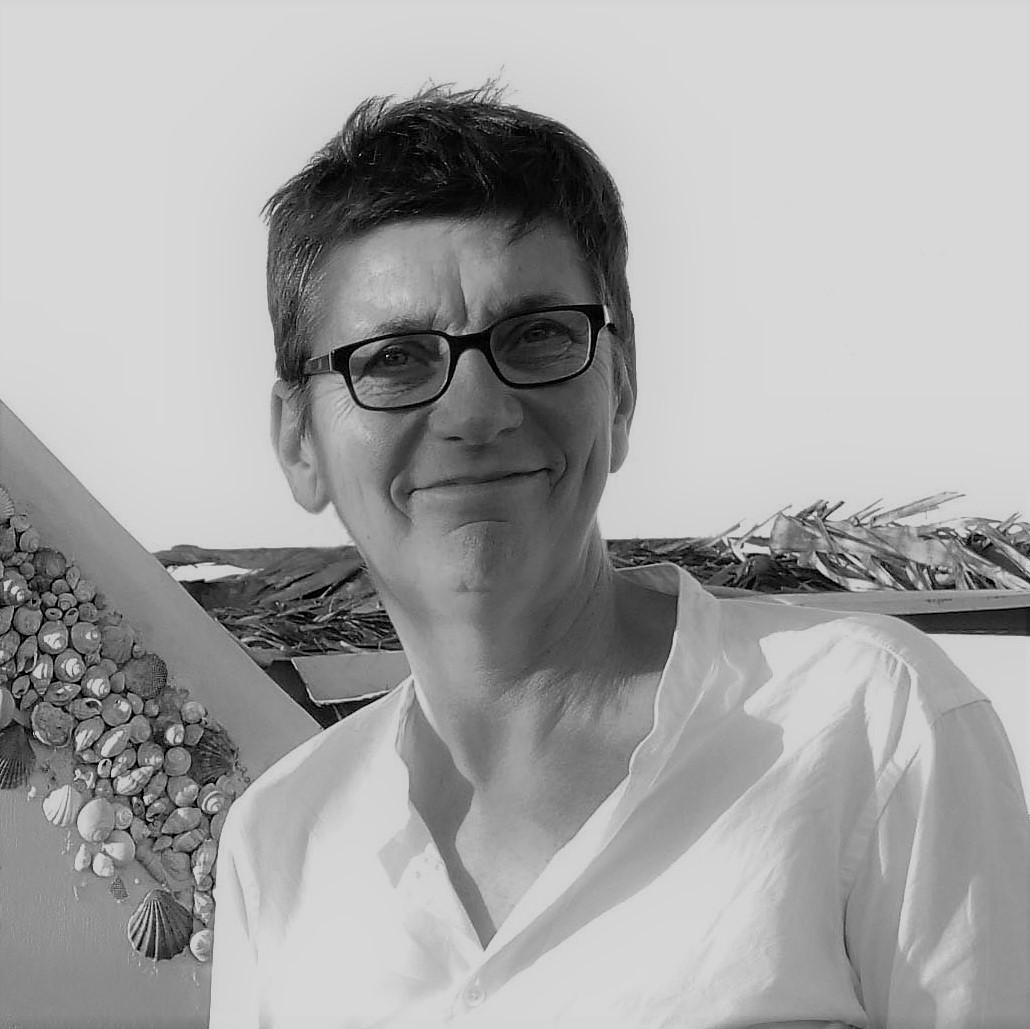Trained as a chemist, with a PhD in Physical Chemistry, my scientific interest is now focused on social studies of sciences, after obtaining a Master’s degree in the History of Science, Technology and Society at EHESS in 2012. I am currently a CNRS Research Engineer at LISIS, Université Gustave Eiffel (France). My PhD in sociology (nearing completion) adopts a relational perspective. It takes the assemblage (journal scholarly society-disciplinary conference) as research object and illustrates the interdependence of the three components through four distinct empirical studies. It considers publication as a central element of the mechanism of affirmation of a discipline and describes the conditions of maintenance, as well as the coordination mechanisms that underlie the development and allow the continuation of a disciplinary program, that of chemistry.
My Research

The constituted corpus includes 2564 journals, of which 2277 are active since 2001. It was produced from a query (subject area = chemistry) in the Ulrichsweb commercial database, which contains more than 300,000 titles that meet the definition of a serial. We tracked the following characteristics: dates of creation and death of the journals, their longevity, their frequency of publication, types of publishers (e.g. learned societies or commercial for-profit publishers) and the places of publication. From the classification in subject headings, we also studied the dynamics of specialities or sub-disciplines which co-exist in chemistry.
Abstract
Institutionalizing Chemistry Through Journals (1789–2018). Longevity, Publication Frequency, Places of Publication and Dynamics of Sub-Disciplines
Based on the analysis of a database of 9,675 titles built for the purposes of this research, the proposed communication (which is the result of a collaborative work with Frédérique Bordignon, Ecole des Ponts) describes the main characteristics of the chemistry editorial landscape over the long term (1789-2018). In line with historical works on scientific periodicals, we consider journals as research objects that shed light on the history and sociology of chemistry, whether it be their inclusion in the debates of an era, their relationship to organizations and institutions, or the links that chemistry has with other disciplines. Through the study of a field from its origin, this analysis aims to understand what has changed in two centuries. It is a question here of simultaneously accounting for the unity and diversity of a discipline which grows, as Bensaude-Vincent argued, in a rhizomatic manner. This work is also an opportunity to question the stability of its disciplinary program, to reveal trends and shifts in the history of the discipline and explain them in the light of significant historical milestones, but also by considering the impact of contemporary events, such as the arrival of the Internet and Open Access policies. This corpus exemplifies a mature discipline (with a large number of century-old journals) with an extensive international coverage (45 different languages, 87 countries). The constant and continuous growth in the number of journals illustrates a relatively linear history with episodes and a fairly stable »publication regime« that corroborates the results published on the Journal of the American Chemical Society (Noel 2020).
Recent Publications
Noel, M. Back to disciplines: exploring the stability of publication regimes in chemistry: the case of the Journal of the American Chemical Society (1879–2010). Humanit Soc Sci Commun 7, 57 (2020).
Marianne Noel. ›Made in Europe for the World‹: Making a Claim for a European Chemistry in Publication Programs. The Case of the Supramolecular Chemistry (1987-2005). Annals of the Fondazione Luigi Einaudi. An Interdisciplinary Journal of Economics, History and Political Science, Fondazione Luigi Einaudi npo, 2019, LIII, pp.2532 – 4969.

